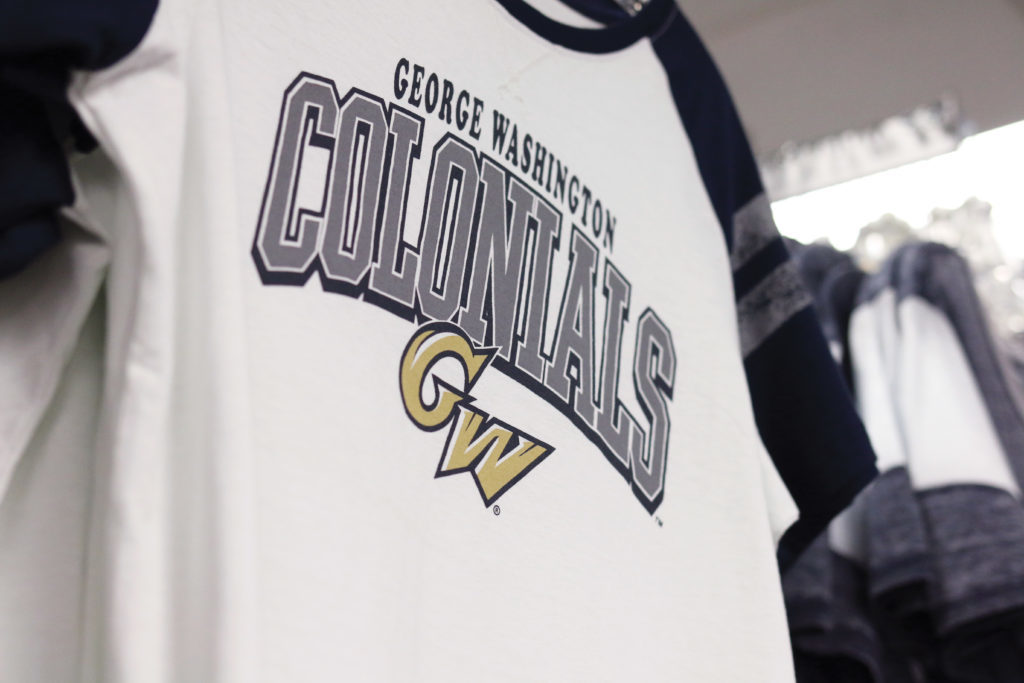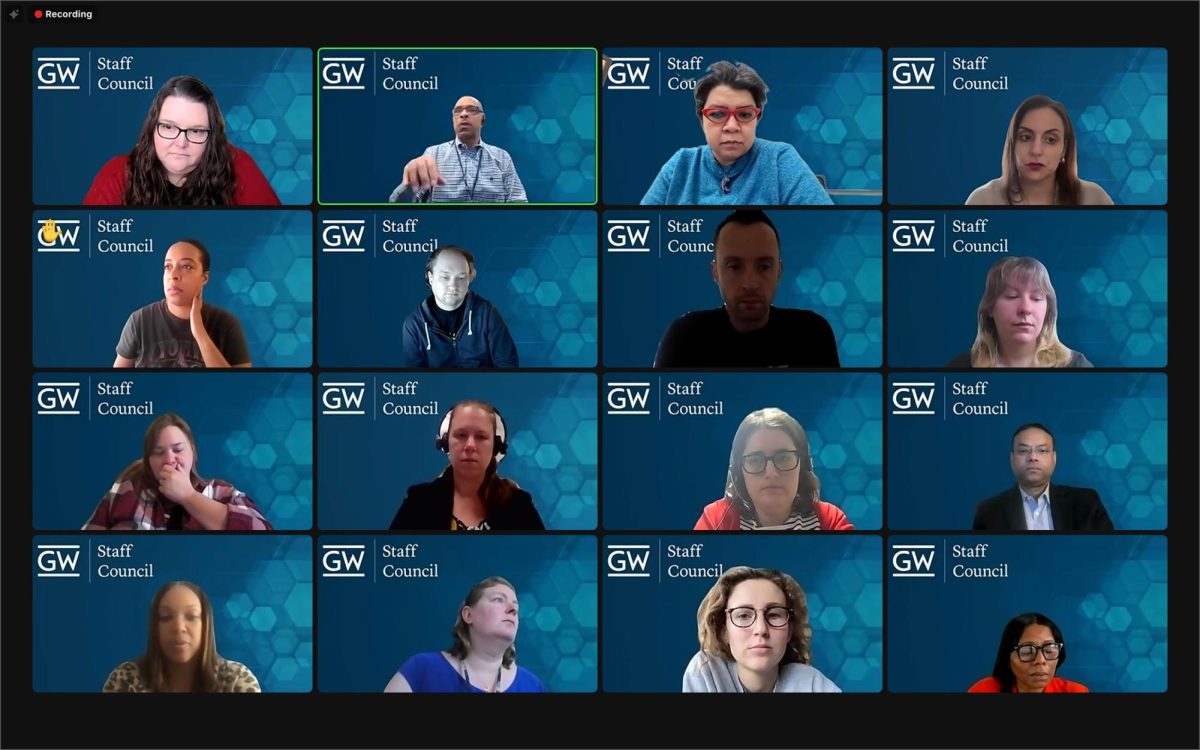The Board of Trustees approved a framework Friday to consider renaming requests for GW’s buildings and established procedures for evaluating the Colonials moniker.
The guidelines – recommended by the Board’s Task Force on Naming, which was established last fall – stipulate that officials will consider requests from any GW student, employee or alumnus for name changes to buildings or memorials based on six considerations, according to a release. University President Thomas LeBlanc will “take immediate steps” to appoint a “diverse and representative” special committee to evaluate the merits of changing the Colonials moniker, the approved framework states.
“As institutions across the nation grapple with how best to confront difficult legacies of racial injustice, our hope is that we have given the University a guidepost in the form of a useful set of questions to ask in the extraordinary circumstance of reconsidering the name of a building or memorial,” Mark Chichester, the chair of the task force, said in the release. “I want to thank the many members of our community who shared their thoughts and concerns in helping us arrive at a framework that we hope will reasonably stand the test of time.”
The special committee will evaluate the Colonials moniker based on six considerations – its historical context, process of initial selection, connection to the University, “depth and breadth” of offense or harm, prominence at GW and the legal and financial implications of changing the moniker, according to the approved framework.
“It became apparent that a framework intended to address namesakes for buildings, memorials and such is not appropriately applied to an examination of the moniker,” the approved procedures state. “It is the task force’s sense that renaming should be rare, and, while in no way sacrosanct, moniker reconsideration, given that there is only one moniker at any given time, should arguably be even rarer – potentially a matter of one-time concern.”
LeBlanc will formally acknowledge a 2018 student petition calling for the moniker change, the 2019 passage of a student referendum in favor of the change and former Student Association President SJ Matthews’ executive order establishing a Colonial Moniker Task Force, the framework states.
The Board will make a final decision if the committee recommends a moniker change, according to the framework.
Members of the GW community can request a reconsideration of the name of any campus building or memorial by emailing the Office of the President at [email protected]. Requests must receive at least 500 signatures from students, faculty, staff or alumni unless LeBlanc waives the requirement, according to the framework.
Individuals overseeing the renaming process will follow six guiding principles.
“It is the sense of the Board of Trustees that reconsideration of the name of a building or memorial of any sort should be a rare undertaking, pursued only in extraordinary circumstances,” the framework states.
The president will acknowledge the request, add it to an online registry for the GW community to view and request additional information, if necessary, according to the framework. If the request is “reasonably compelling” based on six guiding principles, the president will consult “appropriate constituencies,” like the Faculty Senate’s executive committee or SA leadership, and appoint a special committee to research and evaluate the request.
The committee will assess requests on six guiding considerations – prevalence and persistence of the namesake’s “repugnant” behavior, harm caused by the behavior, “strength and clarity” of historical evidence, the namesake’s relationship to GW, earlier consideration of the naming’s appropriateness and opportunity for education – the framework states.
If the committee finds a compelling case for renaming, the group will consult with the Board of Trustees chair, who can decide to send the request to the Board for a final decision.
“While the guiding principles will apply to all requests for reconsideration, the unique circumstances of each case will inform the timing and, ultimately, the decision that is rendered,” the approved procedures state. “The Board of Trustees retains the final authority over all matters related to naming, whether arising under the renaming framework or the gift naming policy. “







